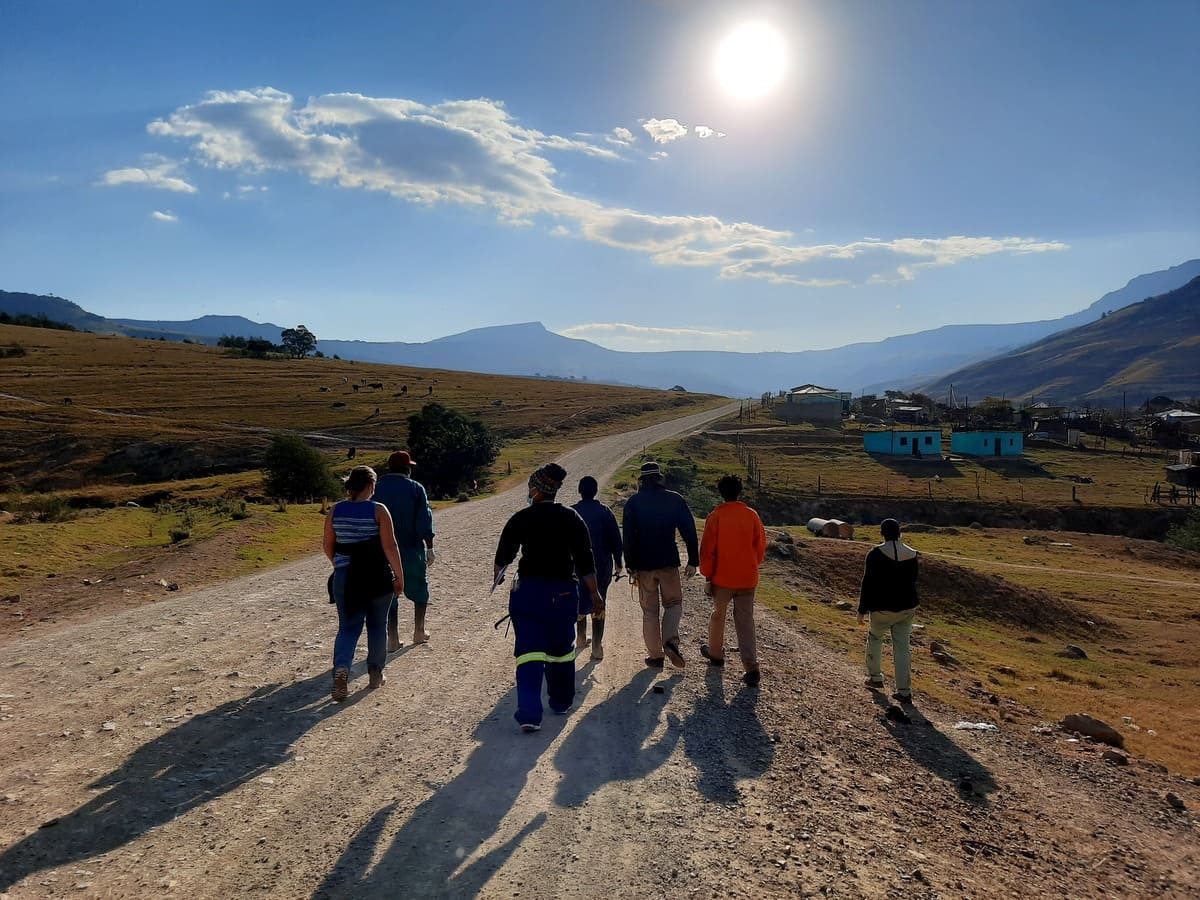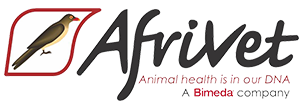One of Bimeda’s values is Innovation and one of our core sustainability pillars is Community. We commit to seeking ‘opportunities to contribute to the wellbeing of people, animals and the environment in the communities where Bimeda operates.’
Bimeda’s South Africa Team, Afrivet, have combined their innovative mindset and their commitment to serve their community in an exciting project to target a particular zoonotic disease (ie the transmission of disease from animal to human), related to a tapeworm found in pigs. Read on to learn more.
Taenia solium tapeworm, pigs and humans
Neurocysticercosis (NCC) is a human neurological disease caused by the tapeworm, Taenia solium. The natural life cycle of this tapeworm includes humans as final hosts (known as taeniasis), and pigs as intermediate hosts (cysticercosis).
The transmission of the parasite from pig to human is through the ingestion of encysted larvae in undercooked pig meat. When this happens, humans develop tapeworm.
However, the neurological disease NCC develops when humans accidentally ingest the tapeworm’s larvae (ie eggs).
This can happen through exposure to a contaminated environment and lack of access to proper sanitation.
NCC In Eastern Cape
NCC is responsible for causing more than 60 percent of cases of epilepsy in young people in the Eastern Cape Province of South Africa.
Lack of access to sanitation in resource-poor rural communities has unfortunately contributed to a high number of NCC cases in this region, with a high number of both adults and children presenting with epilepsy.
The Afrivet team, along with other stakeholders, decided to undertake an initiative to see if they could better understand how to break this cycle.
Afrivet’s Commitment To The Community
A team, which included Afrivet representatives, the state veterinarian and animal health technicians from the local state vet office, as well as members of the Upper Gxulu village, embarked on an NCC- intervention program in June of 2021.
Dr Caryn Shacklock of Bimeda’s South African business, Afrivet, commented, “In 2021, Afrivet initiated and funded a pilot intervention project to tackle cysticercosis and NCC in an Eastern Cape village, with the recommendation that the region’s state veterinary services continue with the protocol in the long term”.
The project focused on vaccinating pigs against the parasite and also orally administering Paranthic, which is an oxfendazole product effective against the encysted larvae of the tapeworm.
The assumption being tested was that if pigs were treated and vaccinated, the tapeworm and its encysted larvae could not be passed to humans, which in turn would prevent them from developing tapeworm and NCC respectively. Given that 60% of epilepsy cases in the region are caused by NCC, finding a way to prevent NCC from occurring would have huge benefits for the community.
General Education
In addition to the vaccination program, the team provide education regarding the transmission of larvae and the importance of hygiene intervention measures, such as handwashing.
The NCC Intervention Project
A population of free-ranging pigs was identified in the Upper Gxulu community in the Keiskammahoek region of the Eastern Cape Province. Several community-engagement meetings were held to educate the pig owners and obtain their consent for the proposed intervention project, and to provide feedback and recommendations afterwards.
The team treated all the eligible pigs that they could find in the village (105). They looked for cysts in the tongues of all pigs that were vaccinated to get an idea of the prevalence of the disease in the pig population.
The 105 pigs that met the criteria for eligibility for vaccinations were given a 1ml of Cysvax vaccine and subjected to tongue inspection ( lingual palpation) to inspect for the presence of cysts caused by the tapeworm.
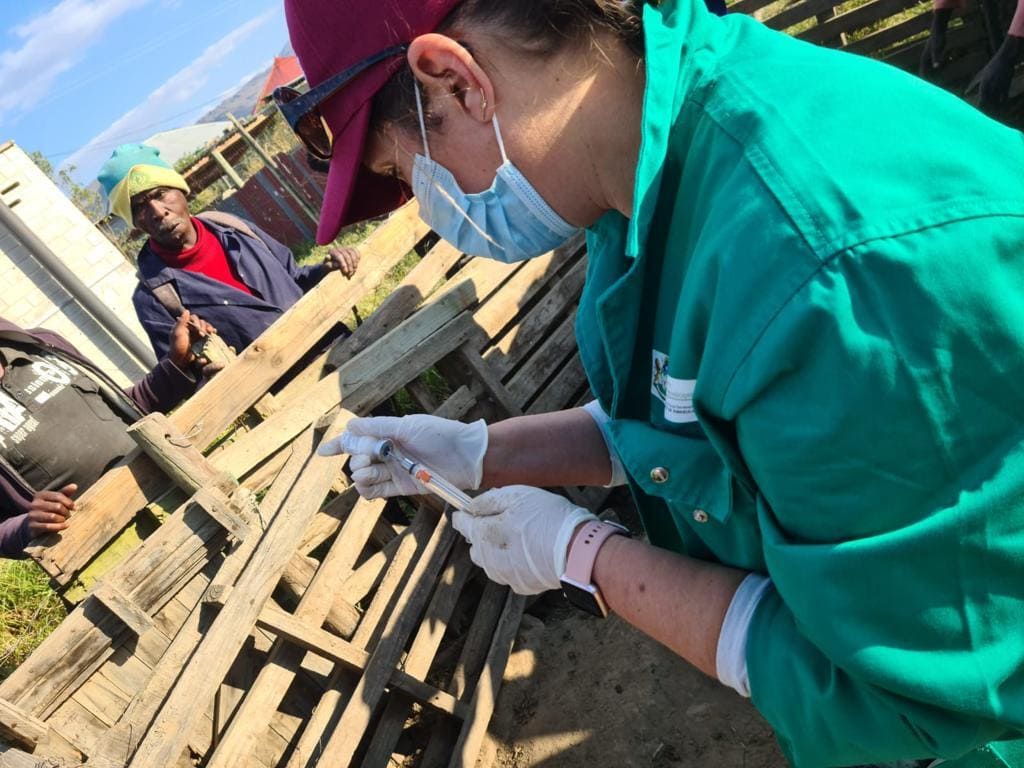
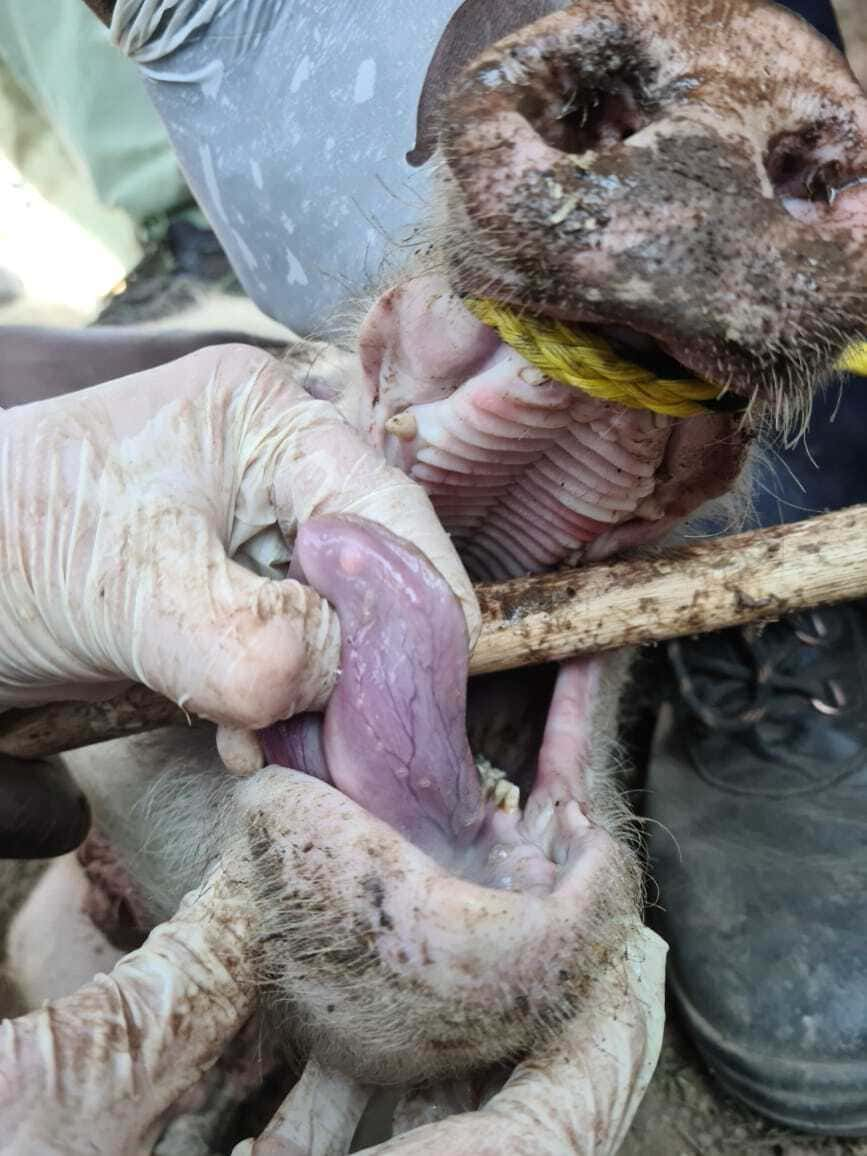
Five weeks later, the team returned to the village to administer a second dose of Cysvax to the pigs, as well as a single dose of Paranthic, which is an oxfendazole product effective against the encysted larvae.
The pigs were marked with an ear tag at each treatment so that fully vaccinated pigs were easily identifiable.
A further 76 pigs had reached the age of eligibility for the first vaccination while the team was in the community in August 2021, so this was administered, and the state veterinarian committed to return to the village to follow up with the second dose of vaccine and the dewormer.
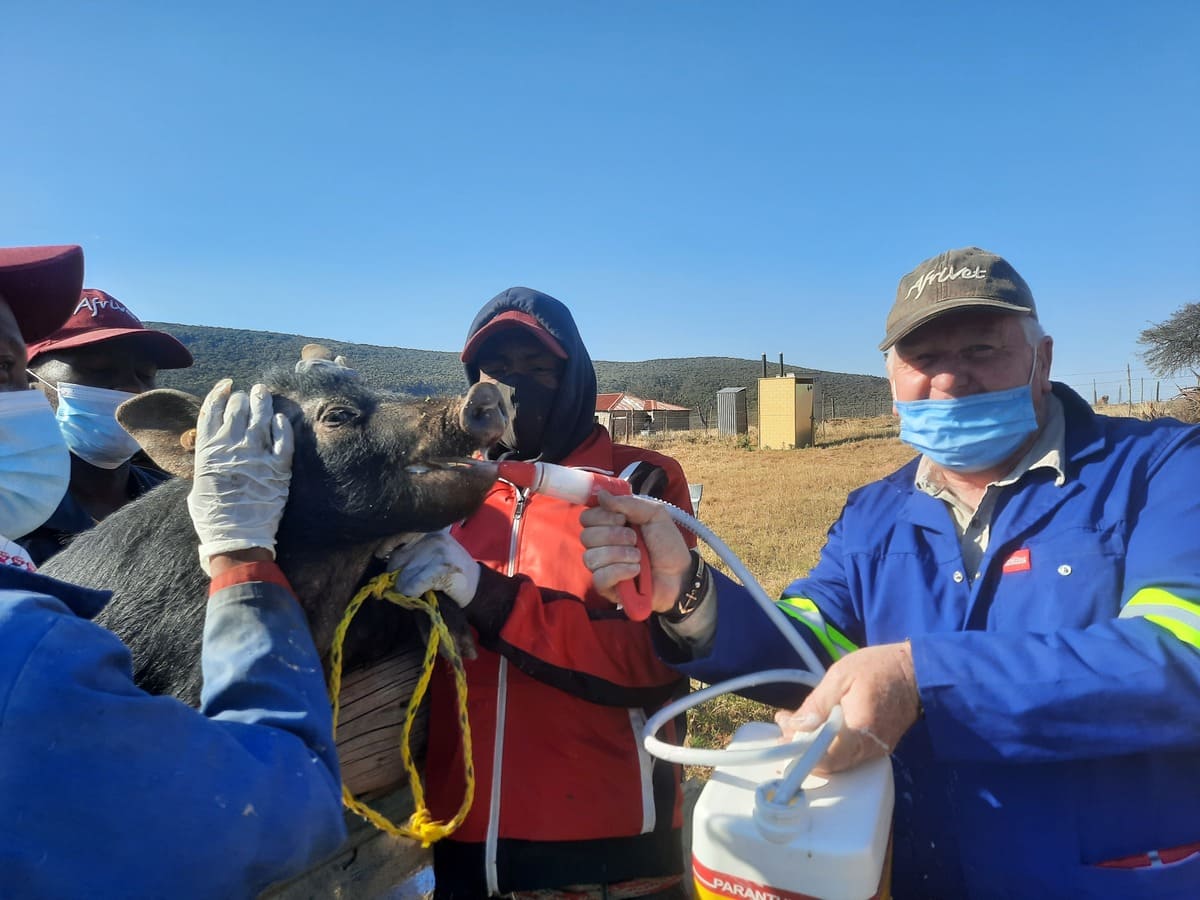
Outcomes
Before the start of the intervention, between 4% and 10% of the pig population that was subjected to lingual or meat inspection was positive for cysticercosis. It can be concluded that T. solium is a problem in the pigs in this community.
At the end of the project, 9 pigs that had received both vaccines and the dewormer were slaughtered, and no tapeworm cysts were found on meat inspection.
The apparent reduction in viable cysts in pigs treated with the vaccine and oxfendazole product indicated the efficacy of the proposed protocol.
The Future
It has been proposed that an animal health strategy aimed at treating only cysticercosis in the pig population - if carried out responsibly and consistently - can effectively eliminate the associated human NCC disease in a community in 3 years.
Afrivet has proposed that the Eastern Cape veterinary services incorporate this protocol into a primary animal health care program into the future. If this happens a positive impact on human health can be expected in the near future.
The Afrivet team were very happy to be able to play a role in identifying innovative new strategies which will benefit the health of not just animals, but also of people in the communities where we operate.
